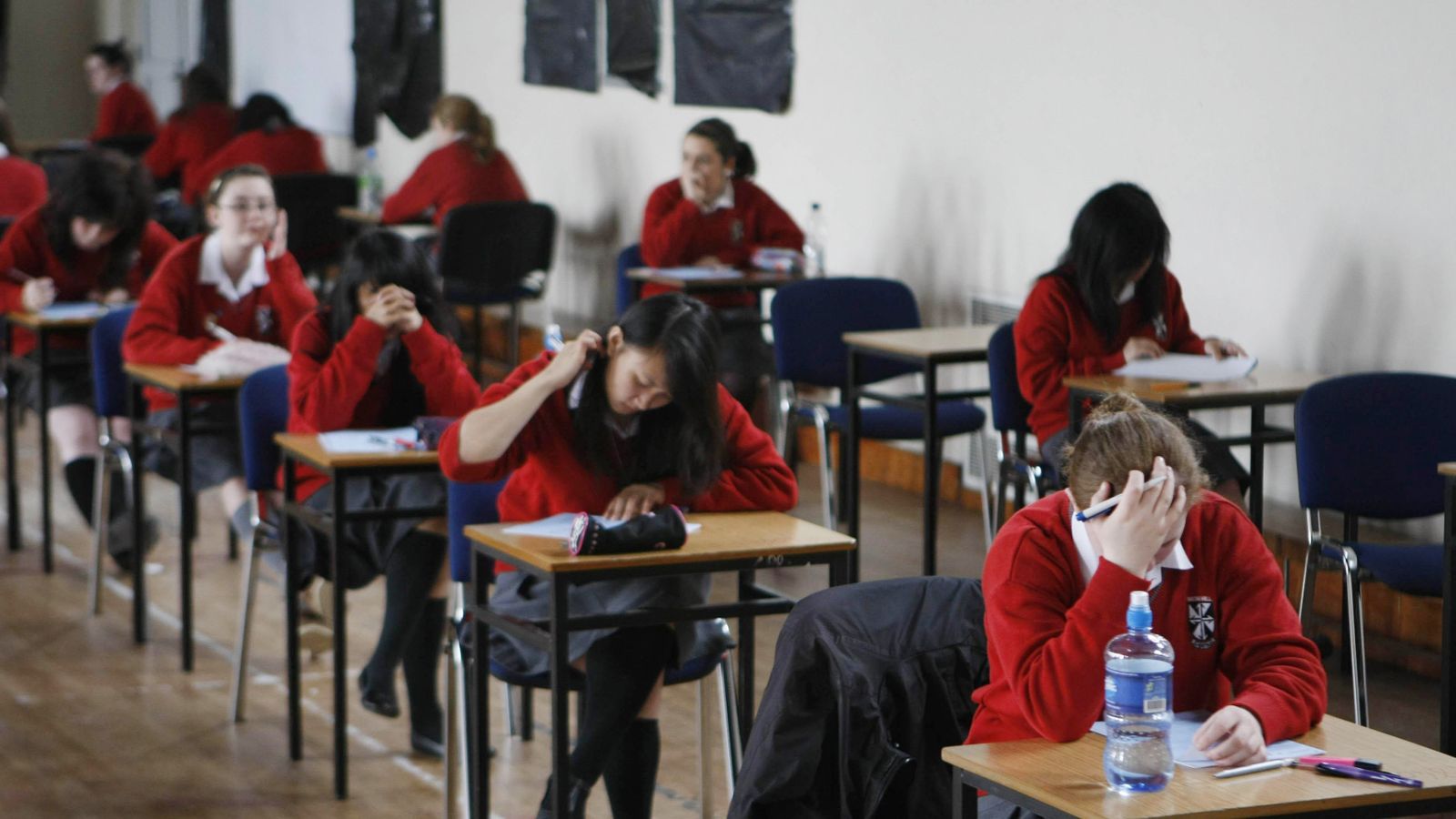Students in England will today learn what topics they will be tested on in their GCSE and A-level exams.
For the first time since 2019, exams will be sat this summer after they were cancelled for the last two years due to the COVID-19 pandemic.
From Monday, teenagers will receive advance information to help them prepare for and focus on their revision.
The change, which was announced last year, is not intended to reduce the range of content pupils need to be taught.
For some text-based subjects, such as English language, the advanced information may include the genre or period that unseen texts used during exams will be drawn from.
Subjects such as art and design, which are only assessed through coursework, will not feature any advanced information.
While in GCSE maths, combined science and physics, equation sheets will be provided to reduce the number of formulas students need to memorise.
Pupils in England to get choice of topics and ‘advance information’ to make exams ‘fairer’
Are too many students going to university? Record number have been accepted into their first choice
How where you live, your background and the school you went to may affect your A-level results
In English literature, history, ancient history and geography, advanced information will not be released and instead students will be assessed on fewer topics.
The information will be made available on exam board websites from today.
Exam boards said they would release information in February rather than earlier in the academic year, as headteachers had called for, so pupils would continue to learn the entire curriculum.
Read more: GCSE system needs an overhaul and ‘arbitrary’ exams at age 16 should be scrapped, review says
Students want a ‘fair shot at success’
Sarah Hannafin, a senior policy advisor for school leaders’ union NAHT, said the advanced material “should now provide teachers and students some help on where to focus their teaching, revision and exam preparations”.
“Advance information is not a simple list of what is assessed in the exam; the information is more complex, covers only high tariff questions and might relate to only a particular exam paper or section of it, with different approaches between specifications and subjects,” she said.
“We need to remember this is new to teachers so it will only be over the coming days that we learn whether they believe it will be sufficient to counter the levels of disruption which students have faced due to COVID.
Education Secretary Nadhim Zahawi promises that exams will go ahead this summer, despite advising schools to start preparing for #COVID staff shortages by merging classes into larger groups.
More on this story here: https://t.co/nXdgJVmagv pic.twitter.com/vxU534MZv6
“We would urge everyone to recognise that students have endured during one of the most pivotal period of their lives which can be pressurised even in ‘normal’ years.
“They simply want a fair shot at success in their exams this summer.”
Exam boards to be more generous than usual
In another change, GCSE and A-level examiners will also be asked to be more generous than in previous years to account for disruptions caused during the pandemic.
Ofqual’s chief regulator Jo Saxton said the change is aimed at providing a safety net for students who could otherwise just miss out on their grades.
Follow the Daily podcast on Apple Podcasts, Google Podcasts, Spotify, Spreaker
Although the grading guidelines are set to be more generous than they were before the pandemic, students will not have as much leeway as last year.
Education Secretary Nadhim Zahawi said: “We know students have faced challenges during the pandemic, which is why we’ve put fairness for them at the forefront of our plans.
“The information to help with their revision published today, as well as the range of other adaptations, will make sure they can do themselves justice in their exams this summer.”






















